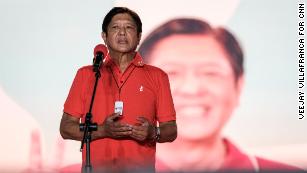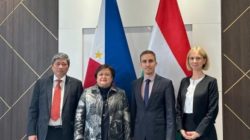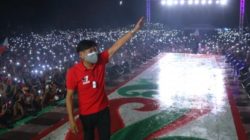According to unofficial findings, Ferdinand “Bongbong” Marcos Jr. is the likely President of the Philippines after winning a landslide in elections on May 9.
According to preliminary and unofficial figures, Marcos Jr. received more than 30 million votes, more than double that of his nearest challenger, outgoing Vice President Leni Robredo.
Despite his popularity among millions of voters, many Filipinos are taken aback by his victory and what it implies for Philippine democracy.
Marcos Jr. comes from one of the most infamous political families in the country. Analysts say his victory represents the successful culmination of a decades-long rebranding campaign that has restored the Marcos family’s reputation and image.
Critics have referred to a pervasive disinformation campaign, recently boosted by social media, that has sanitized the history of the Marcos era, during which Marcos Jr.’s father ruled the Philippines as a cruel and corrupt dictatorship that ended in a popular rebellion in 1986.
Here are some of the reasons why some people are worried about a Marcos Jr. presidency.
According to a White House readout of the call, US President Joe Biden called with Marcos Jr. on Wednesday and congratulated him on his election victory.
“President Biden emphasized that he looks forward to working with the President-elect to strengthen the US-Philippine Alliance while expanding bilateral cooperation on a wide range of issues, including the fight against Covid-19, addressing the climate crisis, promoting broad-based economic growth, and respect for human rights,” according to the readout.
According to state media Xinhua, China’s President Xi Jinping also congratulated Marcos Jr., saying the two countries will “stand together through thick and thin.” The bilateral relationship has lately strained due to competing claims to South China Sea territories, though Marcos Jr. has been forging a rapport with the Chinese Ambassador in recent months.
Southeast Asian parliamentarians, on the other hand, have expressed concern about human rights under a Marcos administration, as well as the impact of online disinformation.
“The widespread distribution of disinformation has created a climate in which many voters have found it impossible to make educated decisions at the polling station,” said Charles Santiago, a Malaysian legislator and head of the ASEAN Parliamentarians for Human Rights.
“While the electoral process was theoretically legitimate, we are worried that voting choices based on lies and negative narratives might have significantly harmed the integrity of the elections and democracy itself.”
Human Rights Watch urged Marcos Jr. to halt the “war on drugs” waged by outgoing President Rodrigo Duterte and to “require the impartial investigation and appropriate prosecution of authorities involved” for extrajudicial murders.
“Marcos should publicly order the military, police, and other security forces to stop killing and torturing dissidents, human rights defenders, and journalists. He should put an end to the practice of ‘red-tagging,’ in which activists and government critics are accused of being Communist soldiers or supporters “Phil Robertson, deputy Asia director at Human Rights Watch, issued a statement.




